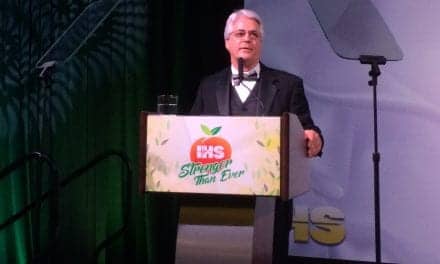In a signal of growing support for the bipartisan Over-the-Counter Hearing Aid Act of 2017, Consumers Union, the National Committee to Preserve Social Security & Medicare, and the Academy of Doctors of Audiology (ADA) have released letters endorsing the legislation, according to a blog post on Sen Elizabeth Warren’s webpage. These three groups joined a number of other organizations representing seniors, consumers, and hearing health professionals in expressing support for the bill’s potential to lower the costs of hearing aids and increase the number of choices available to patients.
The three organizations join AARP, The Gerontological Society of America, the Hearing Loss Association of America (HLAA), and the Consumer Technology Association (CTA) in endorsing this legislation.
Consumers Union commended the bill by saying it would “preserve and reinforce important consumer safety protections,” citing how it maintains state laws holding manufacturers responsible for harm caused by unsafe and defective products, while also expanding the options available to consumers by allowing consumers “to make their own choices” and “to shop around for medical services and hearing aids that best suit their needs and their budget.”
The National Committee to Preserve Social Security and Medicare noted that, while hearing loss is the third most prevalent chronic health condition facing older adults, “70 percent of Americans between age 65 and 84 with hearing loss are not using hearing aids because Medicare does not cover them, and paying for the devices out-of-pocket is expensive.” The organization added that the cost of traditional hearing aids “is high because a small group of companies control the hearing aid market” and noted that “better access to more affordable over-the-counter devices could be helpful to individuals with mild to moderate hearing loss.”
The Academy of Doctors of Audiology referred to how the bill directs the US Food and Drug Administration (FDA) to issue regulations containing safety and labeling requirements for this new category of OTC hearing aids and to update FDA draft guidance on Personal Sound Amplification Products (PSAPs), which would “expand access to quality hearing health products and services.” The organization also stated that “the creation of a regulated OTC class will not increase existing risks to the public” but would “expand access to quality hearing health products and services, reduce duplicative costs, and remove unnecessary, non-beneficial barriers to care.”
The Over-the-Counter Hearing Aid Act of 2017 is designed to make certain types of hearing aids available over the counter to Americans with mild to moderate hearing impairment, and would require the FDA to write regulations ensuring that this new category of over-the-counter hearing aids meets the same high standards for safety, consumer labeling, and manufacturing protections as other medical devices, providing consumers the option of an FDA-regulated device at lower cost.
U.S. Senators Elizabeth Warren (D-Mass), Chuck Grassley (R-Iowa), Maggie Hassan (D-NH), and Johnny Isakson (R-Ga) recently reintroduced The Over-the-Counter Hearing Aid Act of 2017 in the Senate. A companion bill led by Representatives Joe Kennedy III (D-Mass) and Marsha Blackburn (R-Tenn) was also introduced in the House.
The text of the bill is available here. A fact sheet about the bill is available here.
Source: Sen. Elizabeth Warren blog





